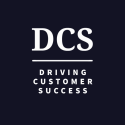The Ultimate Guide to Centralization of Sales, Customer Success, and Support
The Ultimate Guide to Centralization of Sales, Customer Success, and Support

In today’s fast-paced business world, centralization is the name of the game. Whether you’re a one-person consultancy or a growing enterprise, having all your operations seamlessly integrated can make a world of difference. In this blog post, we’ll delve into the art of centralizing your sales, customer success (CS), and support functions, and why it’s crucial for your business.
Why Centralization?
Before we dive into the how, let’s understand the why. Centralization offers several key advantages:
- Streamlined Workflow: Imagine no longer juggling between multiple tools. With centralization, everything you need is at your fingertips, making your workflow smoother and more efficient.
- Enhanced Customer Experience: When your teams have a 360-degree view of each customer’s journey, you can offer personalized support and ensure your clients are not just satisfied but delighted.
- Scalability: As your consultancy business grows, you don’t want to outgrow your tools. Centralization sets the stage for seamless expansion, allowing your business to evolve without unnecessary hiccups.
Now, let’s break down the components of centralization and how you can achieve them.
1. Centralized Database for Partners and Contacts
The cornerstone of centralization is a robust CRM (Customer Relationship Management) system. While options are undoubtedly powerful, they can be overwhelming, especially for smaller businesses. If you’re looking for something simpler and cost-effective, consider platforms like ZOHO or DronaHQ. These tools allow you to maintain a centralized database for partners and contacts, ensuring that you have all your crucial client information in one place.
2. Discrete Sales Pipeline
Managing your sales pipeline is essential for any consultancy business. It involves tracking clients from the initial contact through various stages until you close the deal. While many CRMs offer this feature, they can sometimes be overly complex. HubSpot, for example, provides a simpler solution that allows you to filter customers and use tasks in a Kanban-style system.
3. Customer Success Infrastructure
Customer success is about more than just support; it’s about ensuring your clients achieve their desired outcomes. To monitor customer health and facilitate expansion leads, you need a system that can track and analyze customer interactions. While some dedicated CS software can be pricey, you can start by using the task and project management capabilities of tools like Trello. It’s not a complete CS solution, but it can serve as a bridge until you’re ready for a more comprehensive system.
4. Support Infrastructure
Support infrastructure should enable clients to submit issues easily and track their resolution. If you’re not ready for a dedicated support system, you can begin with shared email inboxes or simple ticketing systems. Tools like Freshdesk or Freshservice can offer a straightforward solution until your consultancy business grows to necessitate a more advanced support infrastructure.
5. Marketing Functionality
While marketing might not be your primary focus, the ability to send bulk email updates to specific client cohorts can be valuable. Many CRM platforms offer basic email marketing features. However, if you’re looking for more specialized marketing tools, consider exploring marketing automation platforms like Gohighlevel. They can help you streamline your marketing efforts alongside other essential functions.
Customization Without Coding
Customization is often a critical factor for businesses with specific needs. If you’re tech-savvy, you might opt for no-code platforms like Glideapps to build your own system. However, if you’re not keen on developing a customized solution, platforms like Fibery offer no-code options with some complexity. For even greater customization, paid solutions like CogniSaaS might be worth exploring.
Conclusion
Centralizing your sales, customer success, and support functions can significantly improve your consultancy business’s efficiency and customer satisfaction. While larger CRM platforms like Salesforce exist, they may be overkill for smaller businesses. Opt for simpler, cost-effective tools that meet your immediate needs, and scale up as your business grows.
Remember, centralization isn’t just about technology; it’s a mindset that fosters collaboration and seamless customer interactions. So, whether you choose a comprehensive CRM or start with basic tools, your journey towards centralization will undoubtedly build character and set your consultancy business up for success.
Author: Hakan Ozturk
Driving Customer Success – www.DrivingCustomerSuccess.com

Hakan Ozturk
Founder, theCScafe.com, #1 Weekly Customer Success Newsletter
Hakan Ozturk is a Paris-based Customer Success leader with over 15 years of experience in the computer software industry. Passionate about driving growth and delivering value to strategic customers, Hakan has established himself as a trusted industry expert. As the Founder of The Customer Success Café Newsletter and TopCSjobs.com, Hakan provides valuable industry insights and daily-updated job opportunities worldwide in the field of Customer Success. Connect with Hakan to boost your career in CS and your company’s potential for massive growth.

Leave a Reply